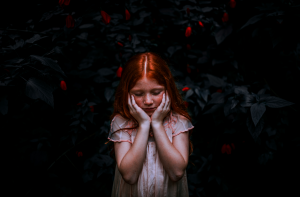6 Ways Our Parents Affect Our Love Styles

Psychologists have long since believed that our childhood shapes the people we grow up to become. From our earliest experiences to our relationship with our parents, this formative time in our lives plays a fundamental role in how we view the world, how we feel about ourselves, and most of all, how we interact with others. Our childhood experiences make up the foundation of who we are, and they continue to inform our attitudes and beliefs long after we’ve become adults – even if we don’t realize it!
One of the most profound ways our childhood can impact our lives is through our love styles. A person’s love style is defined as a specific pattern of behavior related to how they receive and express love, and it is largely modelled after our relationship with our parents. According to researchers Yerkovich & Yerkovich (2011), there are 5 different love styles: the controller, the pleaser, the facilitator, the avoider, and the victim.
With that said, here are 6 ways our parents affect our love styles:
1.The Attention They Give Us
It’s no secret that having parents who consistently fail to give us the attention we need can leave a lot of damaging effects on a person’s self-esteem (Yerkovich & Yerkovich, 2011). Whether it’s because your parents walked out on you, separated, or prioritized their careers over their families, they made you feel like no one was ever really there for you growing up. This forced you to mature too early and learn to take care of yourself at a young age. And as a result, it left you with an overwhelming fear of helplessness that drives your need to be in control of everything all the time, including your relationships. Known as “The Controller”, people who adopt this particular love style are often assertive, rigid, and headstrong. Their parents’ lack of attention has made it difficult for them to rely on others, ask for help, and relinquish their control.

2. The Freedom They Allow Us
According to Erik Erikson’s (1968) famous “Psychosocial Theory of Development”, when our parents act too controlling and overprotective of us, it cultivates feelings of shame, self-doubt, and helplessness that many of us will struggle to overcome even as we grow older. So when your parents are too strict with your freedom and don’t give you much of a say in your life, it can lead you to becoming too compliant and passive in your relationships. And while many people will no doubt appreciate this kind of agreeableness at first, over time they may grow frustrated with your lack of decisiveness, autonomy, and initiative that makes partners feel as if you are not exerting as much effort into making the relationship work as they are.

3.Their Praise and Approval
Were your parents overly critical with you and hard to please? Did you get the sense that they only loved you when you succeeded? And angry with you when you failed? Children who are pressured into meeting their parents’ expectations just to have their emotional needs met tend to develop a compulsive need to please other people as well (Yerkovich & Yerkovich, 2011). A love style known – fittingly enough – as “The Pleaser”, those who tried hard to win their parents’ approval when they were younger usually end up with a neurotic need for praise and validation. They are likely to turn into pushovers who have trouble saying no, always put other people first, and avoid conflict even at their own expense. They have a fear of letting people down and tend to struggle with feelings of insecurity and inadequacy.

4.Their Consistency/Dependability
Do you often feel alone and misunderstood by those around you? Do you yearn for emotional connection, only to be let down by the people you love? Then you may have a love style we call “The Vacillator.” The Vacillator is romantic and idealistic, but often to a fault. They have difficulty maintaining intimate relationships because they tend to idealize the people they love and hold them to incredibly high standards. They ask too much from their partners and don’t give them any room for mistakes because they learned from a young age how painful it is to be let down by the people you love.
This is what happens when you grow up with unpredictable parents. They’re unstable, unreliable, and inconsistent with their care and affection. They say they love you and that they want to be there for you, but they’ve just broken one promise too many for you to ever really trust them again. And because your emotional needs were never consistently met, it left you with deep seated feelings of abandonment that make you sensitive to rejection (Yerkovich & Yerkovich, 2011).

5. Their Attitude Towards Emotions
Next is “The Avoider”, a love style characterized by inhibited emotions, a strong need for independence, and a fear of intimacy. People who adopt this kind of love style most likely had parents who neglected their emotional needs and discouraged the expression of their feelings. Whether it was because they didn’t know how to deal with them or wrongly believed that repressing your emotions would make them go away, your parents raised you to believe that being too emotional was a sign of weakness and that it’s wrong for you to need people and seek comfort from them. As such, you became more self-serious, detached from your feelings, and struggled to open up even to the person you love the most in the world (Yerkovich & Yerkovich, 2011).

6. Adverse Childhood Experiences
Finally, but perhaps most importantly, experiencing a traumatic event at a young age, especially by the hands of our own parents, can significantly affect the way we view and approach our adult relationships (Anda, et al., 2006). “The Victim” love style is the result of growing up in a chaotic home environment or living with an angry or violent parent. These negative early experiences have made you hesitant to trust and even more hesitant to love. You may struggle with feelings of anxiety, depression, and low self-esteem because of how you were treated. Meek, docile, and emotionally damaged, people like this are just constantly waiting for the other shoe to drop because pain and confusion is all they’ve ever known. You can learn more about the different kinds of Adverse Childhood Experiences (ACEs) in “7 Kinds of Childhood Trauma” and “8 Signs You Have Unhealed Childhood Trauma”

Do you relate to any of the things we’ve talked about here? Do you know what kind of love style you have? And how your relationship with your parents led you to being that way?
We are who we are for a lot of reasons, and some we may never really understand. But no matter what we went through or how our experiences have shaped us, we still get to choose the kind of person we become. So don’t let the negative experiences of your past define your future. As the author Stephen Chbosky once wrote, “We may not have the power to choose where we come from, but we can choose where we go from there.”
References:
- Yerkovich, M., & Yerkovich, K. (2011). How We Love Our Kids: The Five Love Styles of Parenting. Water Brook Publishing.
- Erikson, Erik H. (1968) Identity, Youth and Crisis: A Theory of Psychosocial Development. New York: Norton.
- Anda, R. F., Felitti, V. J., Bremner, J. D., Walker, J. D., Whitfield, C. H., Perry, B. D., & Giles, W. H. (2006). The Enduring Effects of Abuse and Related Adverse Experiences in Childhood. European Archives of Psychiatry and Clinical Neuroscience, 256(3), 174-186.



Responses